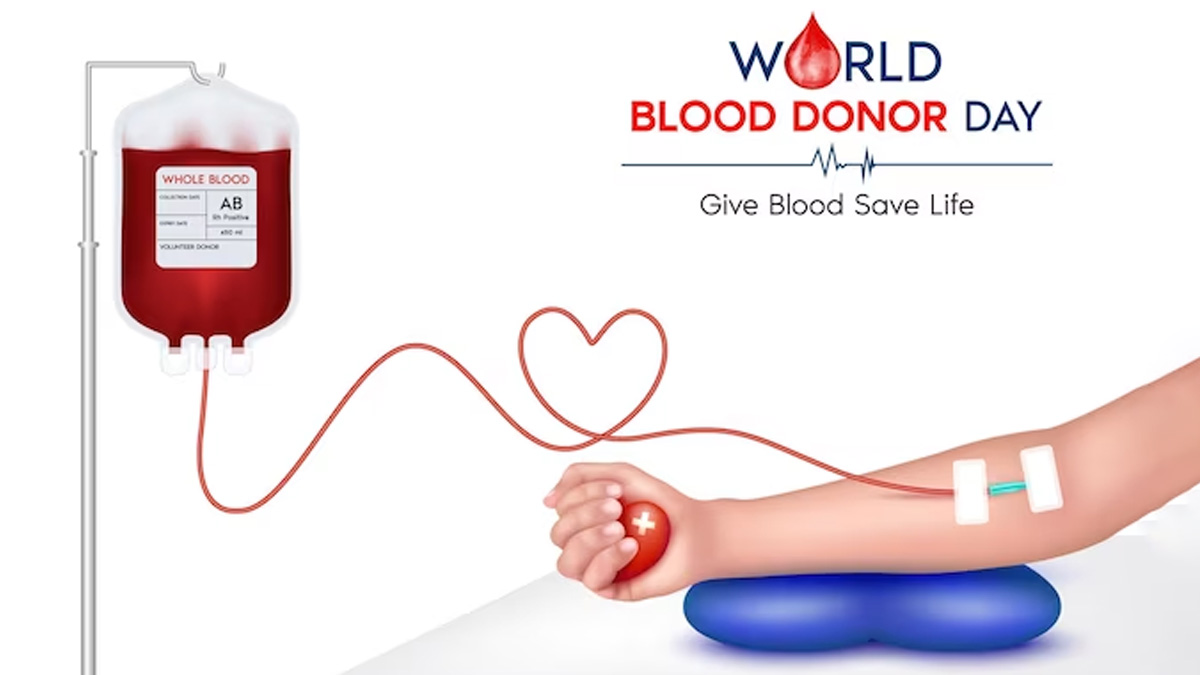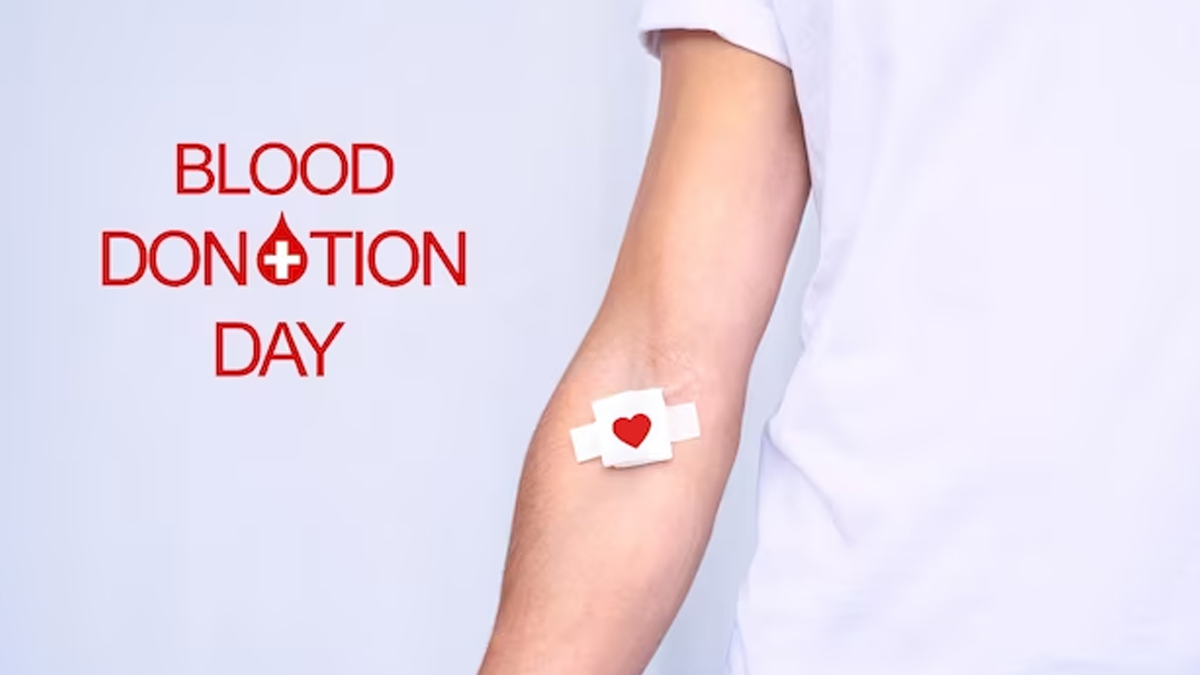
World Blood Donor Day is observed each year on June 14 to spread awareness of blood donation. Blood facilitates the chances of survival for people who grapple with its unavailability. As blood has life-saving outcomes and is not manufactured in factories, you will be remembered by the one receiving it, for saving his life. If you are someone looking for donating blood, this article is for you. To know more about it, we spoke to Dr Venkatesh Billakanti, Consultant Physician (Internal Medicine), Yashoda Hospitals, Hyderabad.
Table of Content:-
Why Donate Blood?
But before talking about the precaution to be taken it is good to know the benefits of blood donation.
"Regular blood donation can have a positive impact on the donor's health, including reducing the risk of heart disease, stroke, and cancer," said Dr Billakanti. "This is because donating blood helps to lower the viscosity of the blood, which in turn reduces the risk of blood clots," he explained.
Knowing that you have helped save lives and improve the health of others can be a rewarding experience. "Many blood donors report feeling a sense of satisfaction and pride in knowing that they have made a difference in someone’s life," said the doctor.

According to a 2022 study conducted in India published in the journal, PLOS One estimated that the supply of blood donations was 33.8 units per thousand donations, while the demand stood at 36.3 units per thousand donations. This revealed an annual shortage of one million units, highlighting the pressing need for increased blood donations.
Also Read: World Blood Donor Day 2023: Importance Of Safe Blood Donation
Things To Keep In Mind Before Blood Donation
According to Dr Billakanti, there are several things you should keep in mind to ensure a safe and successful donation.
Check your Eligibility
"Not everyone can donate blood. You must check your eligibility by reviewing the criteria set by the organization or centre where you plan to donate," said Dr Billakanti.
The criteria may be as follows:
- Age between 18 to 60 years.
- Haemoglobin between 12 to 17 mg/dl.
- Not to have fever two days prior and on the day of donation (should not suffer from any infection).
- Blood pressure below 150/90 mm Hg and not less than 100/60 mmHg.
- Normal pulse at the time of donation and weight not less than 45 kg.
- Should not have taken any antibiotics for the past 48 hours.
- Not to have consumed alcohol up to 24 hours before donation
Prepare Yourself

Dr Billakanti said, "Eat a healthy meal and drink plenty of fluids before donating. You should avoid fatty foods and alcohol." He stressed getting a good night's sleep the night before the blood donation.
Bring Identification
"Bring a valid identification card with your photo and full name. You may also be required to provide your date of birth and contact information at the time of donation," said the doctor.
Also Read: World Blood Donor Day: Top 5 Myths That PreventPeople From Donating Blood
Medical History
"You will be asked questions about your medical history, including your sexual history. It is important to be honest, as some medical conditions or activities may disqualify you from donating," said Dr Billakanti.
People with a history of the following condition should not donate blood:
- High blood pressure or uncontrolled diabetes.
- Chronic infections like Tuberculosis (TB), kidney issues, or chronic liver disease
- Pregnant and menstruating women
- Blood clotting disorders
- Viral infections, such as hepatitis B and C or HIV
- Active infection on the day of donation
- Recent vaccination for rabies and hepatitis
Inform the Staff of the Medications You are Taking
Dr Billakanti said, "Certain medications may affect your eligibility to donate blood. Inform the staff of any medications you are taking or have taken recently, like vaccination for rabies or hepatitis, anticoagulation, anti-platelets, and antibiotics."
Be Aware of the Potential Side Effects
"After donating blood, you may experience side effects, such as dizziness, lightheadedness, or nausea. It is important to rest and stay hydrated after donating to minimise these side effects," he added.
Follow Post-Donation Instructions
You will be given specific instructions to follow after donating blood. "These may include avoiding strenuous activities for a certain period of time and drinking plenty of fluids," suggested Dr Billakanti.
By keeping these things in mind, you can help ensure a safe and successful blood donation experience.
[Disclaimer: This article is for informational purposes only. Consult your healthcare professional before going for blood donation to ensure you can donate blood without any complications.]
Image Credits: freepik
Also watch this video
How we keep this article up to date:
We work with experts and keep a close eye on the latest in health and wellness. Whenever there is a new research or helpful information, we update our articles with accurate and useful advice.
Current Version
